Sabrent Rocket NVMe 512GB Performance Testing
We are moving towards using larger test sizes on our benchmarks, but on several tests, we also used the smaller default test sizes. This allows us to see the difference between lighter and heavier workloads. Unfortunately, our entire backlog of SSD reviews did not include this testing methodology, so we are doing the best we can with generating comparison charts.
BlackMagic Disk Speed Test
This is a popular speed test in the video community. It shows whether a storage device is suitable for throughput required at a given video format.
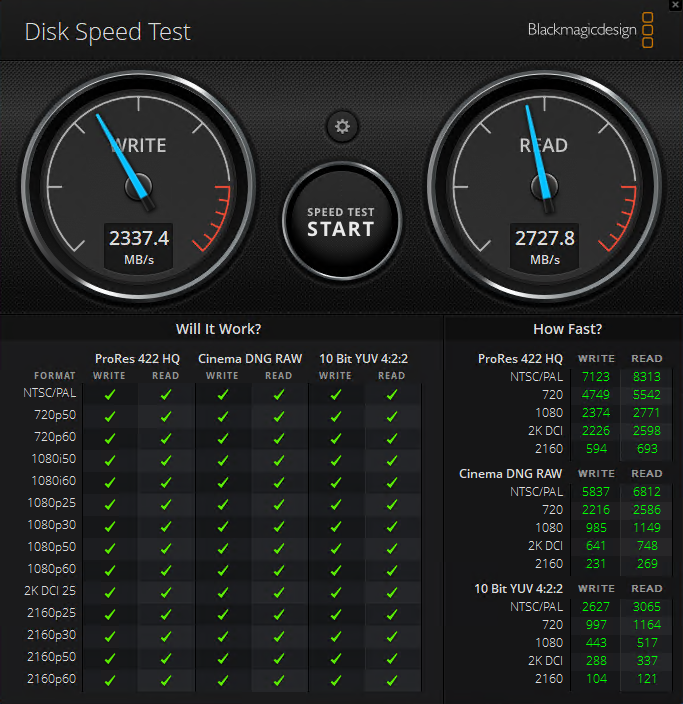
As a PCIe 3.0 NVMe SSD, the Rocket NVMe 512GB has a good showing here and handles every format this benchmark can test for.
CrystalDiskMark 7.0.0 x64
CrystalDiskMark is used as a basic starting point for benchmarks as it is something commonly run by end-users as a sanity check.
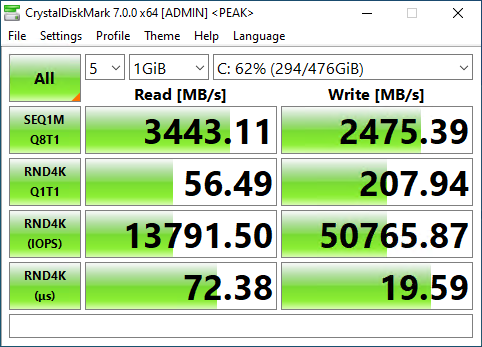
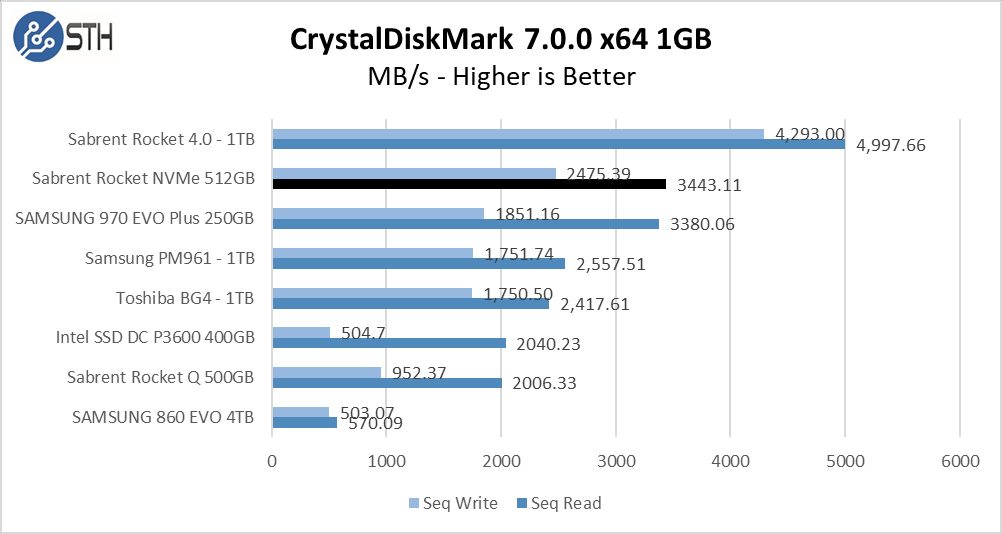
Using the 1GB test set, the Rocket NVMe 512GB is achieving numbers in excess of the advertised 3400MB/s read, 2000MB/s write, and tops our chart for PCIe 3.0 drives.
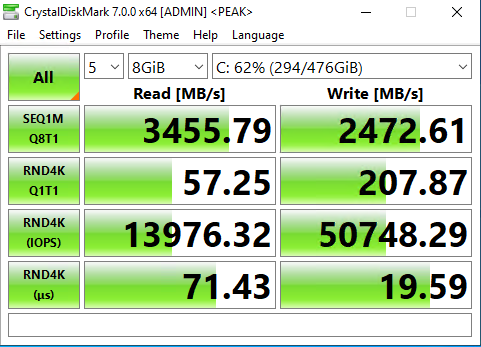
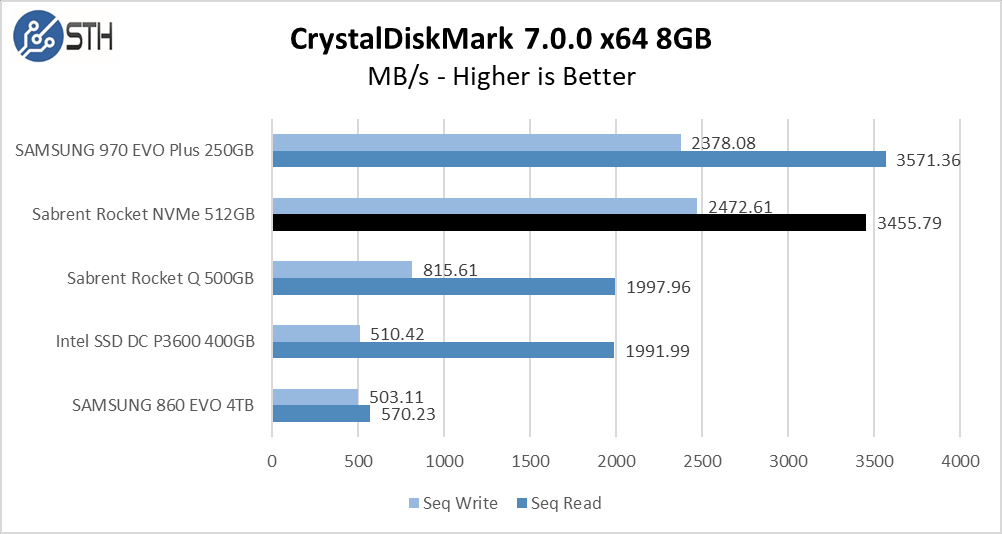
With an 8GB test set, the performance remains exemplary and does not degrade from the smaller 1GB test.
ATTO Disk Benchmark
The ATTO Disk Benchmark has been a staple of drive sequential performance testing for years. ATTO was tested at both 256MB and 8GB file sizes.
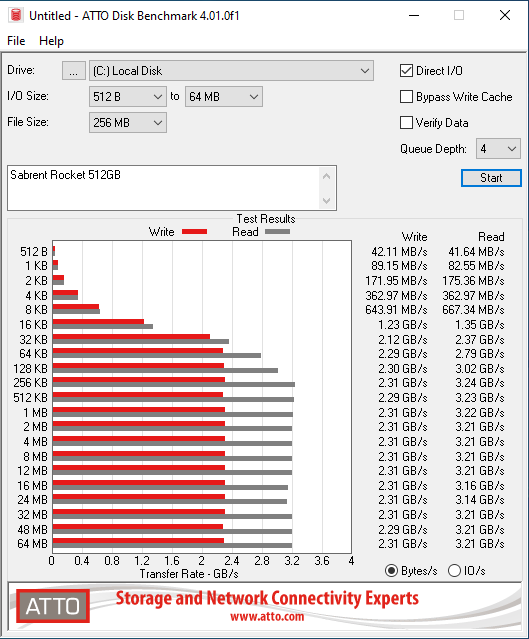
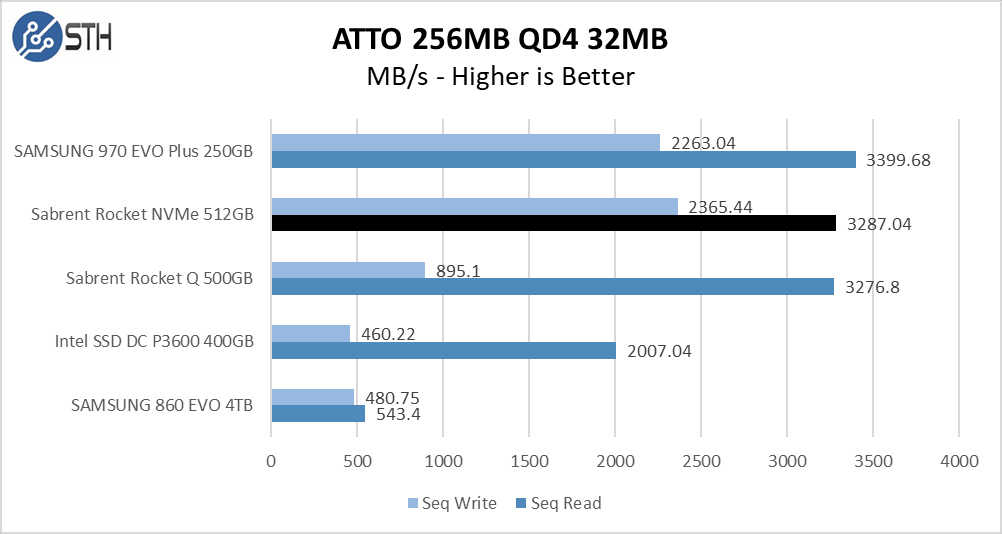
Similar to CrystalDiskMark, ATTO performance is excellent. Here the read performance is not quite at the advertised 3400MB/s but it is very close, and the write speeds exceed the 2000MB/s specs.
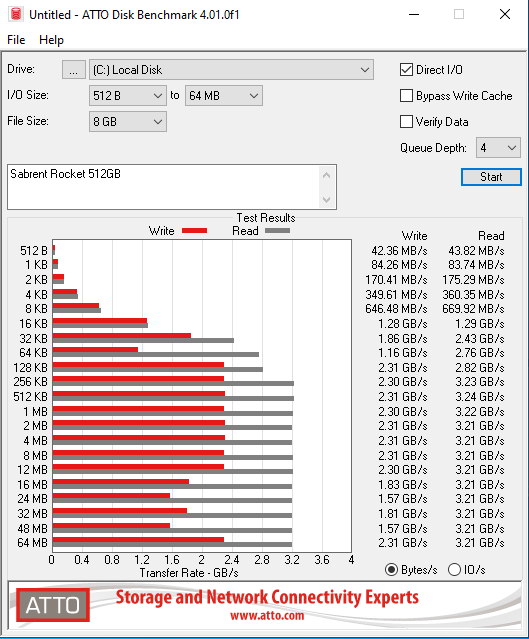
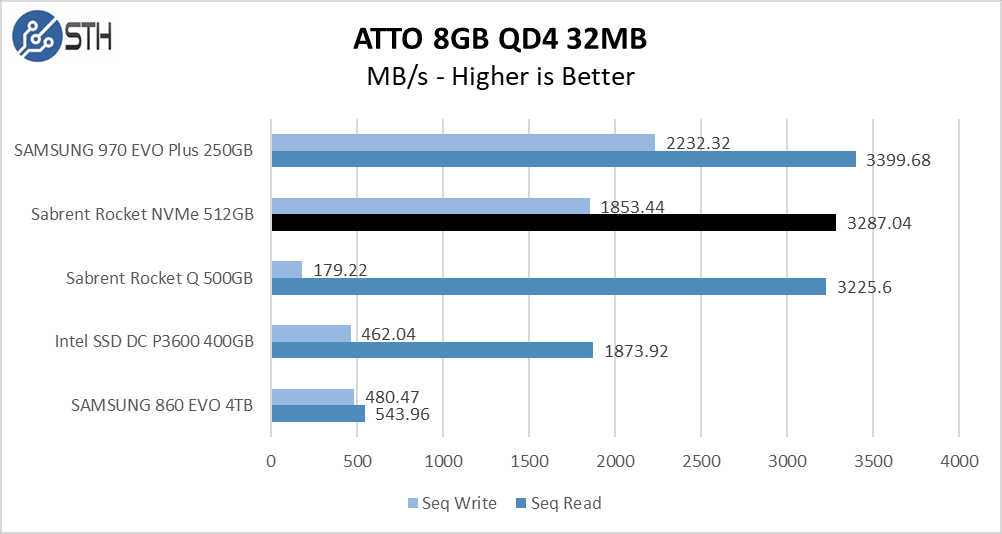
Once we moved to the 8GB file size, write speeds suffer a small amount compared to the smaller test set, but still remain strong. One can see the 64KB and 16MB-48MB write speed dips that were not present at 1GB sizes.
Anvil’s Storage Utilities
Anvil’s Storage Utilities is a comprehensive benchmark that gives us a very in-depth look at the performance of drives tested. This benchmark was run with both a 1GB and 8GB test size.
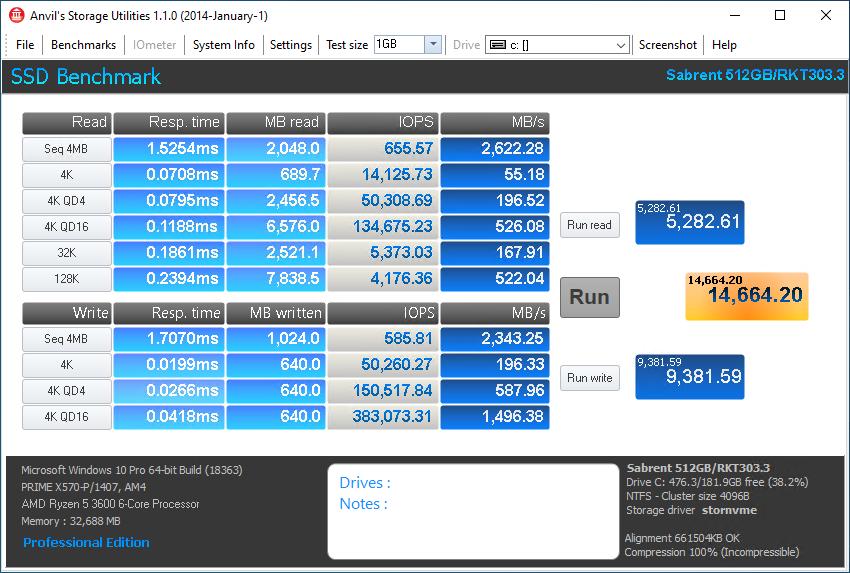
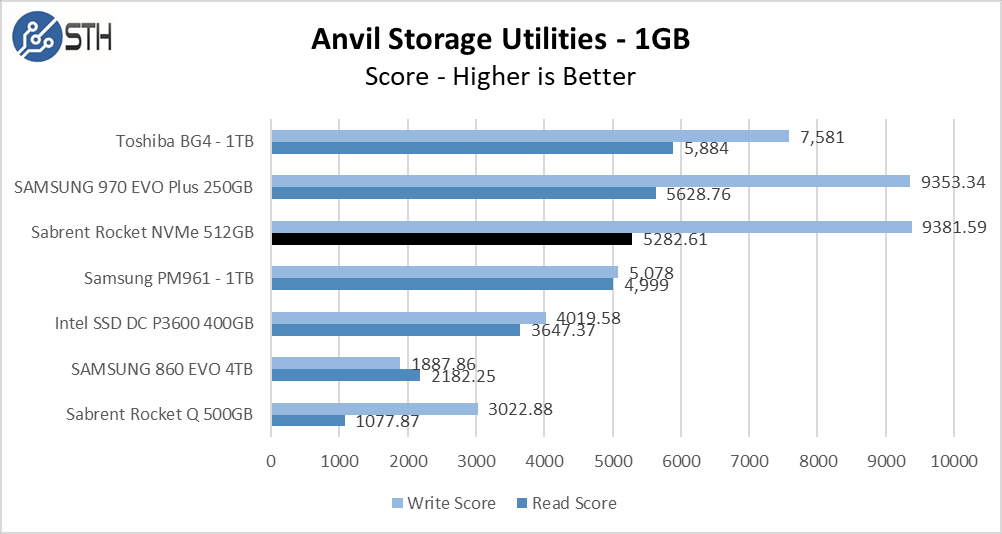
With Anvil running a 1GB test size, the read speeds are lower than with CDM or ATTO. The write speeds remain very high.
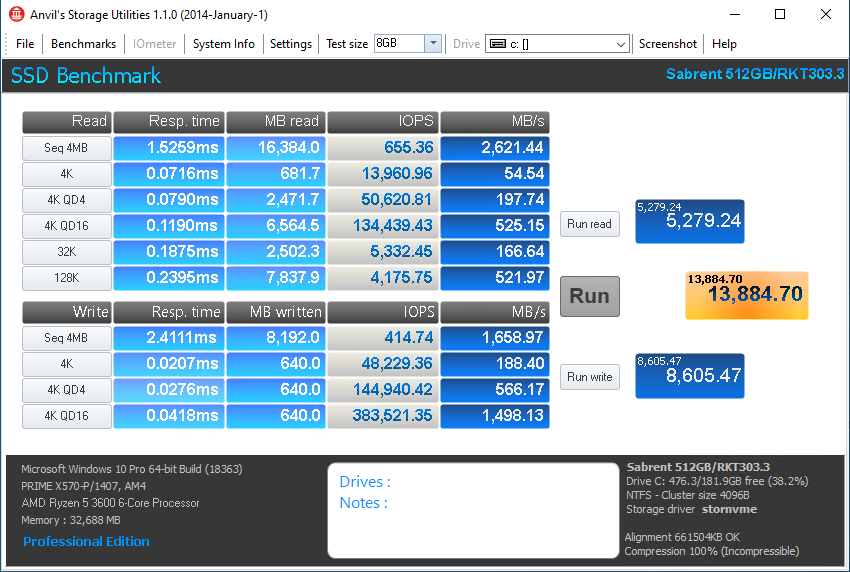
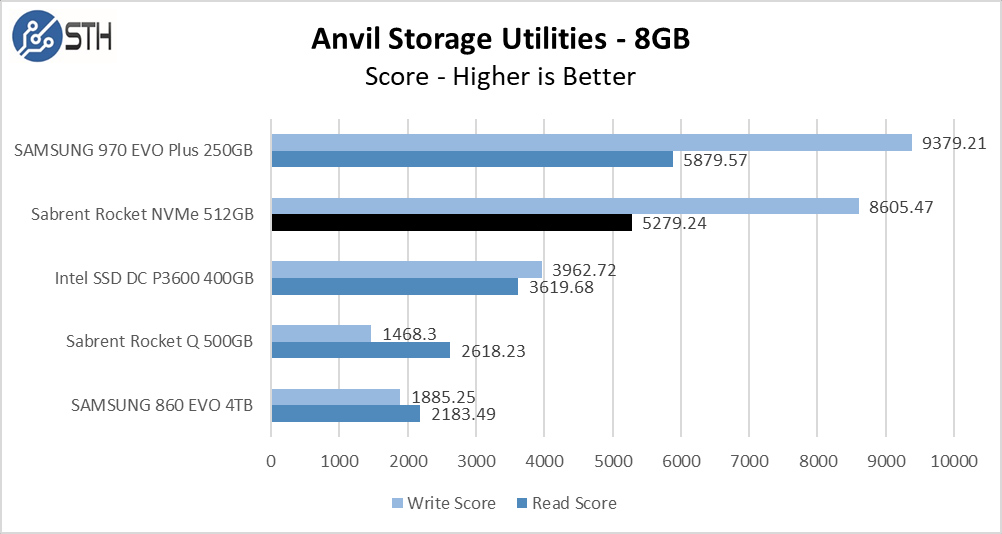
With 8GB test size, writes have suffered a bit, but read speeds have remained steady. This is a fairly common trend due to buffering.
AS SSD Benchmark
AS SSD Benchmark is another good benchmark for testing SSDs. We run all three tests for our series. Like other utilities, it was run with both the default 1GB as well as a larger 10GB test set.
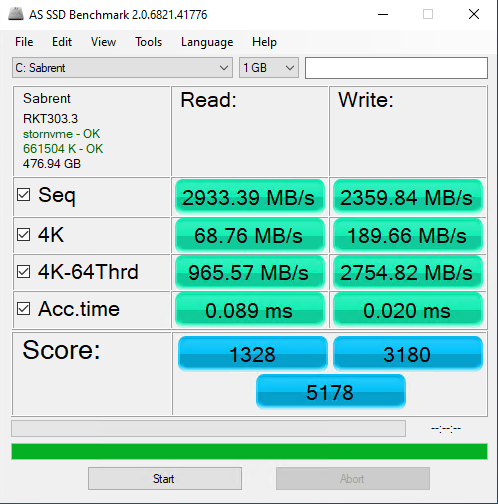
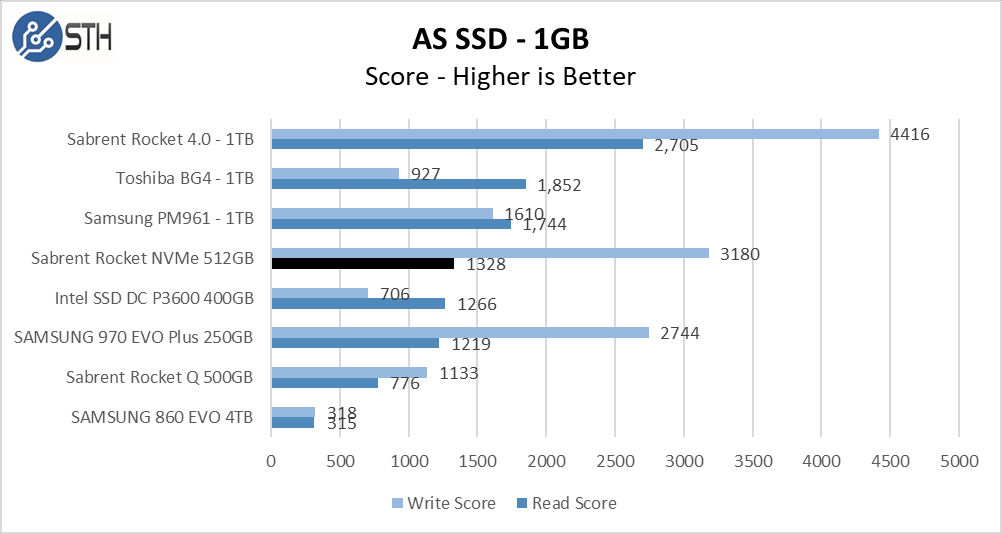
With the smaller test set, performance numbers are strong and continue the pattern of fast but not quite 3400MB/s reads, while writes are consistently faster than 2000MB/s.
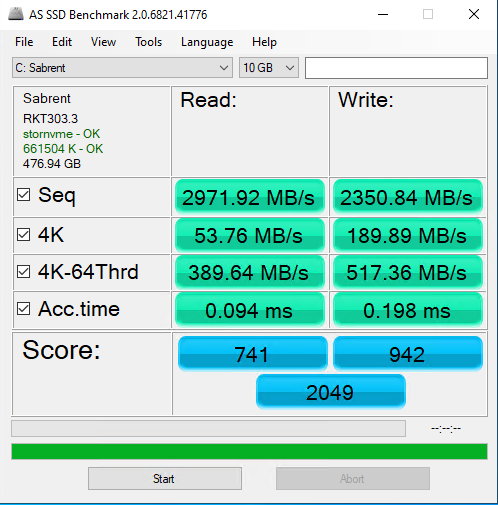
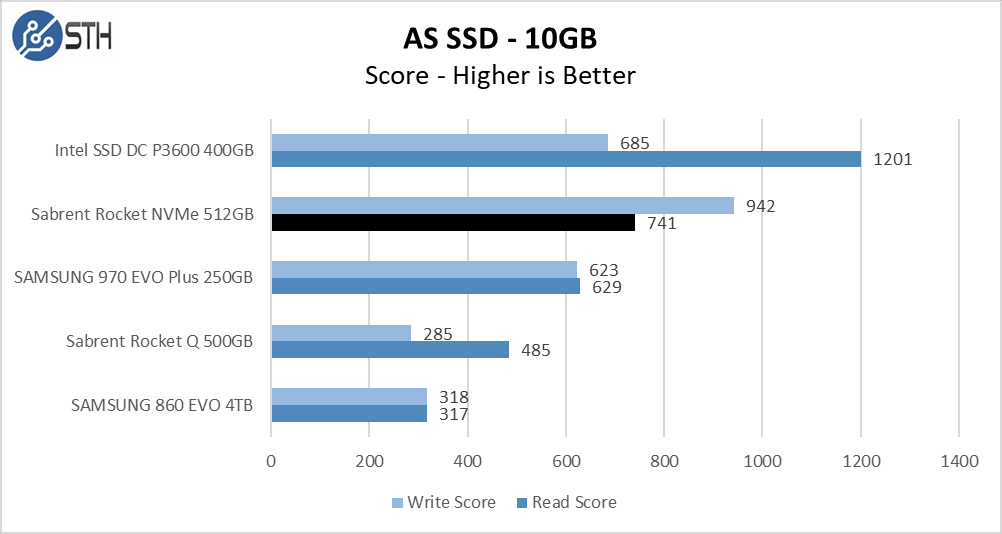
With AS SSD the larger test set has little impact on the sequential numbers, but the 4K-64Thread results are lower by a large margin. The Rocket holds up better than the previously reviewed 970 EVO Plus, but the Intel P3600 still manages to show the difference between an enterprise drive with PLP and MLC NAND on the consumer-oriented drives in this benchmark.
PCMark, SPECworkstation, and our conclusion are up next.

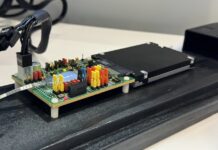
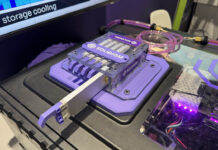
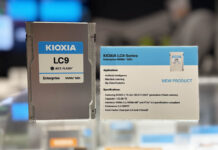
Nice to see you put a few words about power loss protection (PLP) and sync writes.
A subject that need more attention from reviewers in general.
Especially when they review drives which actually have PLP but DON’T squeze the manufactorer to provide the size of PLP backed cache, which they rarely provide!??
If the cache is low, the PLP it’s worthless and nothing more than a cheap marketing trick, that the reviewer should be wise enough to see. A litte off-topic I know. A good example is Micron’s 5300 Pro and Seagate IronWolf 110. None of them will reveal the chache size!
I bought the 1TB version of this in July 2019 from Amazon UK for £105 ($129) and it’s superb value at that price. Excellent performance and even a 5-year warranty if you register the drive online. Will certainly consider their PCIe 4.0 variant when I get my next PC (likely to be a Zen 4 machine in 2022) – hopefully the PCIe 4.0 Rocket price will come down to something a little bit more sensible by then!